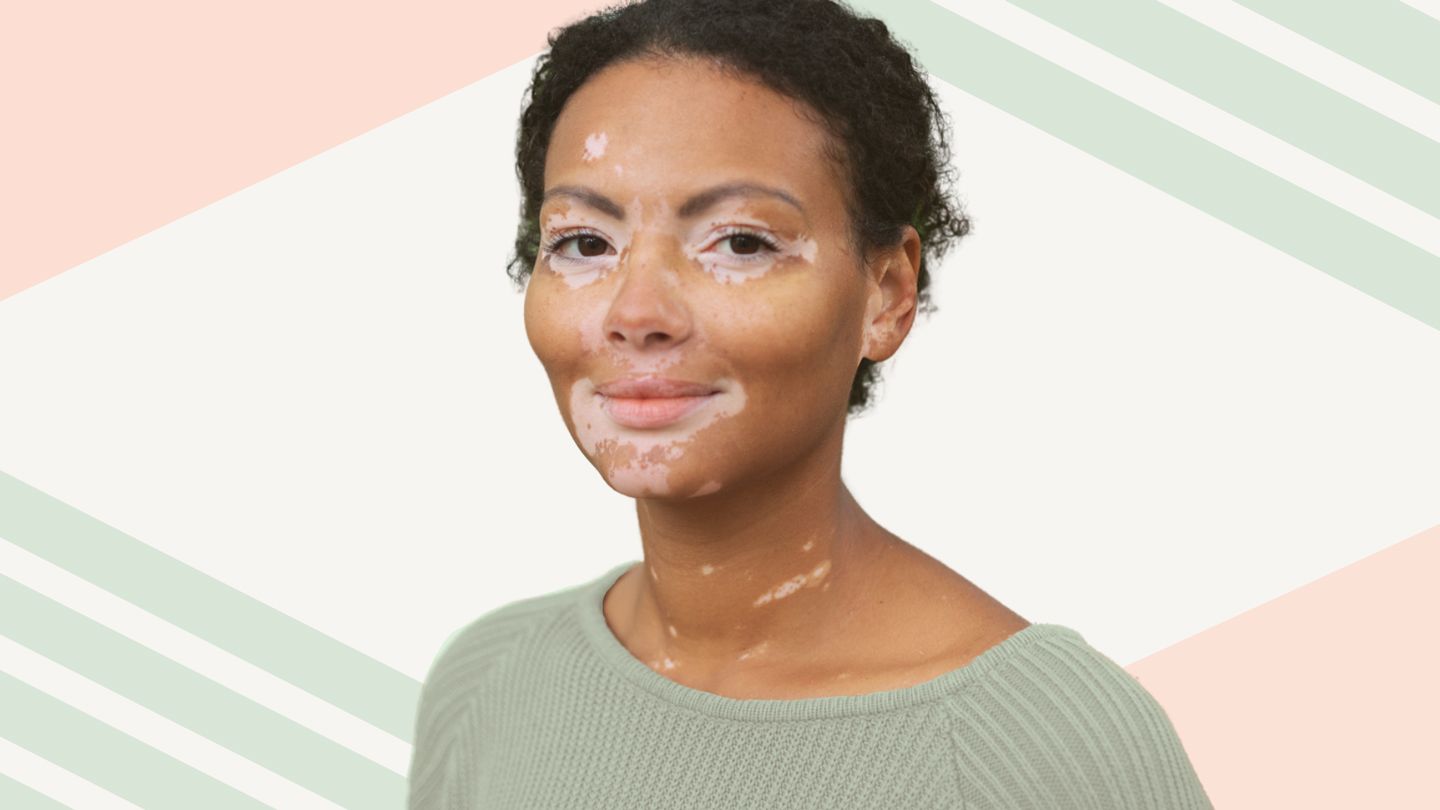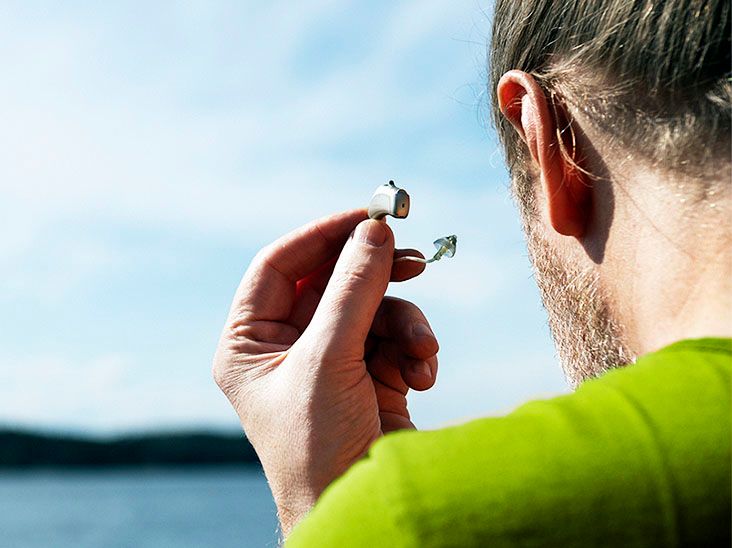Hey there. If you're reading this, chances are you or someone close to you has noticed something a bit unusualnot just the familiar white patches of vitiligo, but perhaps also some changes with your hearing. You're not alone in feeling puzzled. Let me take you through what we currently know about this surprising connection, in a way that's honest, approachable, and hopefully helpful.
The Surprising Link
Let's start with the basics. Vitiligo is that autoimmune condition where the immune system mistakenly attacks melanocytesthe cells responsible for skin color. But here's the thingmelanocytes aren't just hanging out in your skin. They're also found in your inner ear, which is where things get interesting. So, could vitiligo actually affect your hearing? Well, some research suggests there might be a connection, though it's not something we see in every case.
Think of it this way: if your melanocytes are under attack in your skin, they might also be affected in other parts of your body where they naturally existlike your ears. It's not a guaranteed side effect, but it's worth paying attention to.
What Research Tells Us
Now, I want to be completely upfront with you. The research on vitiligo-related hearing issues isn't super extensive yet. It's one of those areas where we have some intriguing clues but not all the answers. What we do know is that some studies have found a higher rate of hearing problems in people with vitiligo compared to the general population. The most common type seems to be sensorineural hearing lossthat's when there's damage to the inner ear or the nerve pathways from the inner ear to the brain.
Imagine your inner ear as a finely tuned orchestra. When the melanocytes there are damaged, it's like some of the musicians are missing their sheet music. The whole performance doesn't necessarily fall apart, but it might not sound quite right. Some people experience no symptoms, while others might notice ringing in their ears (tinnitus) or difficulty hearing certain frequencies.
Recognizing the Signs
Here's what I want you to keep in mind: this isn't about scaring you. It's about being informed and aware. If you have vitiligo, it's worth being attentive to changes in your hearing. This might include:
- A persistent ringing or buzzing sound in your ears
- Difficulty hearing conversations in noisy places
- Sudden changes in hearing
- Sensitivity to certain sounds
I remember talking to someone who mentioned, "I always thought my ringing ears were just from listening to music too loud. It wasn't until my dermatologist asked about other symptoms that we realized it might be connected to my vitiligo." That kind of awareness can make such a difference in catching things early.
How Doctors Check for Connection
If you're worried about hearing changes, your doctor will likely start with a hearing test called an audiogram. This is painless stuffjust putting on some headphones and listening to different tones. Depending on the results, they might want to do additional tests or even an MRI to get a better look at what's happening in your inner ear. The key here is that these are just precautionary steps. Not everyone with vitiligo needs these tests, but it doesn't hurt to be thorough when something's not quite right.
Treatment Possibilities
Now, here's where we get real. Currently, there's no specific treatment that directly addresses vitiligo-related hearing loss. Butand this is importantthe hearing loss associated with vitiligo is often manageable. Hearing aids can be incredibly effective for sensorineural hearing loss, and there are amazing assistive technologies out there now.
I've heard from several people who were nervous about trying hearing aids but found them life-changing. One friend told me, "I was worried I'd feel old wearing them. Instead, I feel more connected to the world around me." That's the goal, right? Keeping you engaged and enjoying life to the fullest.
Vitiligo Treatments and Hearing Health
You might be wondering: if I'm getting treatment for my vitiligo, should I be concerned about my hearing? Generally speaking, most vitiligo treatments are considered safe for people with hearing concerns. Light therapy, topical treatments, and even some systemic medications typically don't have direct effects on hearing. However, it's always smart to keep your medical team informed about all your symptoms and concerns.
Some doctors recommend having a baseline hearing test before starting certain treatments, just so you have a reference point. Think of it like taking a photo of your car before a road tripit's good to know what normal looks like in case you need to notice changes down the line.
Living Well with Both Conditions
Here's something I've learned from talking with people who manage both vitiligo and hearing issues: adaptation is a skill, and you're probably better at it than you realize. It might mean getting more comfortable asking people to repeat things, using smartphone apps that transcribe conversations, or finding creative ways to stay connected with loved ones.
There's also an emotional side to consider. Dealing with changes in how you look and how you hear can affect your confidence. I've spoken with people who found support groups incredibly helpfulnot just for the practical advice, but for the understanding. Sometimes you just need to talk to someone who gets it.
Everyday Adjustments
The small changes you make in daily life can have a big impact. This might mean:
- Letting coworkers or classmates know about your hearing preferences
- Using visual alerts on your phone instead of just sound-based notifications
- Creating quieter spaces in your home for conversations
- Wearing hearing protection in loud environments
These aren't limitationsthey're smart strategies. I think of them like wearing sunglasses on a bright day. You're not broken; you're just optimizing for your environment.
Maintaining Your Health
Regular check-ups with both your dermatologist and audiologist can help you stay on top of any changes. Some experts recommend annual hearing tests if you're experiencing symptoms, but even if you're not, it's worth mentioning any concerns during your routine appointments. Your medical team can help you decide what's right for your individual situation.
I've found that people who take an active role in their healthcare often feel more confident and in control. Don't hesitate to ask questions, seek second opinions if something doesn't feel right, and remember that your concerns are valideven the subtle ones.
Looking Ahead
The research into autoimmune conditions and their effects on different body systems is ongoing, and that's exciting. Every year, we're learning more about how conditions like vitiligo interact with other systems in our bodies. While we might not have all the answers yet, we do have better tools and treatments than ever before.
I want to emphasize this: having vitiligo doesn't mean you're destined to develop hearing loss. Many people with vitiligo have no hearing issues at all. But being aware and informed means you're prepared and empowered to take action if needed.
Your Questions Matter
I know this can feel like a lot to process. You might be wondering what symptoms to watch for, whether you should bring this up with your doctor, or just wanting reassurance that you're not overreacting. These questions are all completely valid. In fact, the very act of asking questions shows you're being proactive about your healthand that's always a good thing.
I encourage you to jot down any concerns you have before your next medical appointment. Sometimes it's hard to remember everything in the moment, but having a list can help make sure you cover the topics that matter most to you.
Building a Support Network
Connecting with others who understand what you're going through can make such a difference. Whether it's online communities, local support groups, or just trusted friends and family members, having people who get it helps lighten the load. I've seen how powerful it can be when people share their experiences and realize they're not alone in what they're facing.
Remember, you don't have to tackle this by yourself. Your medical team, support groups, friends, and family can all be part of your journey toward managing both your skin and hearing health.
Moving Forward with Confidence
Here's the bottom line: yes, there appears to be a connection between vitiligo and hearing loss for some people. But this isn't a scary twist in your health storyit's just another piece of information that can help you make informed decisions. The key is staying aware, staying connected with your healthcare providers, and most importantly, taking good care of yourself both physically and emotionally.
Your health journey is unique, and you deserve support that recognizes that uniqueness. Whether you're dealing with changes in your skin, your hearing, or both, remember that these challenges don't define you. You're a whole person with interests, relationships, and dreams that extend far beyond any medical condition.
If this information has helped you feel more prepared or less alone, I'd love for you to share it with someone who might benefit. And please, don't hesitate to reach out with questions or to share your own experiences. We're all in this together, learning and growing with each new piece of information we discover.
Your health mattersevery single part of it. Stay curious, stay informed, and take good care of yourself.
FAQs
Can vitiligo actually cause hearing loss?
Yes. Melanocytes, the cells targeted in vitiligo, are also present in the inner ear. When these cells are affected, it can lead to sensorineural hearing loss in some individuals.
What are the early signs that my hearing might be affected?
Watch for persistent ringing (tinnitus), difficulty hearing conversations in noisy places, sudden changes in hearing clarity, or increased sensitivity to certain sounds.
How do doctors evaluate a possible link between vitiligo and hearing loss?
They usually start with an audiogram, a painless hearing test that measures response to different tones. Depending on the results, further imaging or specialist referrals may be recommended.
Are the treatments for vitiligo harmful to my ears?
Most standard vitiligo therapies—such as topical steroids, light therapy, and many systemic medications—do not directly affect hearing. It's still a good idea to discuss any new treatment with both your dermatologist and audiologist.
What options are available if I develop hearing loss?
Sensorineural hearing loss can often be managed with hearing aids, assistive listening devices, or, in some cases, cochlear implants. Early detection and fitting lead to the best outcomes.
Disclaimer: This article is for informational purposes only and does not constitute medical advice. Always consult with a healthcare professional before starting any new treatment regimen.
Related Coverage
Vitiligo herbal remedies: benefits, safety tips, and how they complement conventional treatments for clearer skin....
Learn the correct pronunciation for the fungal skin condition tinea versicolor. Breaking down the scientific name into tin-ee-uh ver-sih-cuh-lor prevents confusion and misdiagnosis....
Vitiligo affects Asians physically and emotionally at all ages. Learn about types, treatments and lifestyle adjustments to manage vitiligo from childhood through adulthood....
Get clarity on properly pronouncing ...
Opzelura is the first FDA-approved topical cream for restoring skin pigment in vitiligo patients. Learn about using Opzelura, expected results, side effects, and costs....
Find out the Opzelura side effects you may experience, how to soothe mild irritation, and signs that need urgent medical attention....
Segmental pigmentation disorder, also called vitiligo, is an autoimmune skin condition causing white patches from melanocyte destruction. Learn about vitiligo causes, diagnosis, treatments, prevention, and outlook....
Learn how to buy ruxolitinib Opzelura cream online to treat vitiligo patches. Understand treatment options, getting a prescription, using insurance, costs, and applying properly....
Learn about the vitiligo hearing loss link, common symptoms, how doctors test it, and practical steps to manage hearing changes....
Michael Jackson, Winnie Harlow, Jon Hamm, and other celebrities have opened up about their experiences with vitiligo. Learn how they're spreading awareness of this skin condition....






